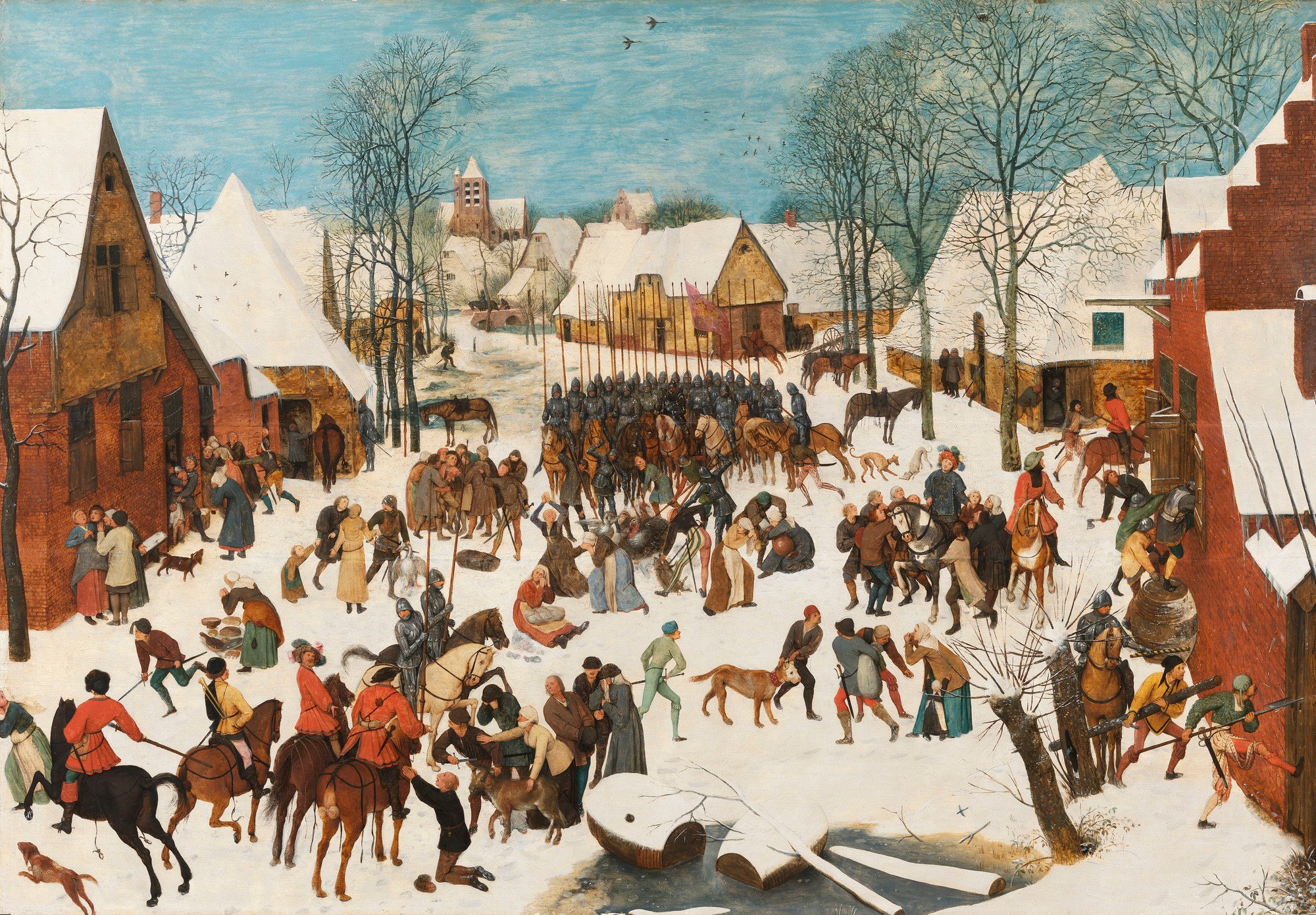
Courtesy of the Royal Collection Trust
Description
According to St Matthew’s Gospel, after hearing from the wise men of the birth of Jesus, King Herod ordered that all children in Bethlehem under the age of two be murdered. Bruegel set the story as a contemporary Flemish atrocity so that the soldiers wear the distinctive clothing of the Spanish army and their German mercenaries.
The artist also drew upon his experience of the exceptionally severe winter of 1564-5 to describe a village covered in snow, with icicles hanging from the rooftops and the pond in the foreground thickly frozen over.
Bruegel’s Massacre of the Innocents was a popular image, repeated numerous times mainly by the artist and by his son, Pieter Brueghel the Younger.
Source: Royal Collection Trust (UK)

Toward the end of his life, however, Herod became increasingly paranoid about potential coups and had several of his sons and his most beloved wife, Mariamne, executed to forestall what he feared were attempts to overthrow him. At one point, Augustus ironically remarked that he would rather be Herod’s pig (which a Jew would not kill) than his son (whom Herod would kill). Although recorded in Latin, the remark probably preserves a play on words in Greek because of the similarity between hus (pig) and huios (son). Thus, although there is no independent confirmation of the story in Matt 2:16 of Herod ordering the massacre of the young children of Bethlehem, the account is entirely in keeping with his character and actions at the end of his time in office.
Craig L. Blomberg, Jesus and the Gospels: An Introduction and Survey, 2nd Edition. p 21–22. [emphasis mine]
Matthew 2:16-18
When Herod saw that he had been tricked by the wise men, he was infuriated, and he sent and killed all the children in and around Bethlehem who were two years old or under, according to the time that he had learned from the wise men. 17 Then was fulfilled what had been spoken through the prophet Jeremiah: 18 “A voice was heard in Ramah, wailing and loud lamentation, Rachel weeping for her children; she refused to be consoled, because they are no more.” (NRSV)
+++
